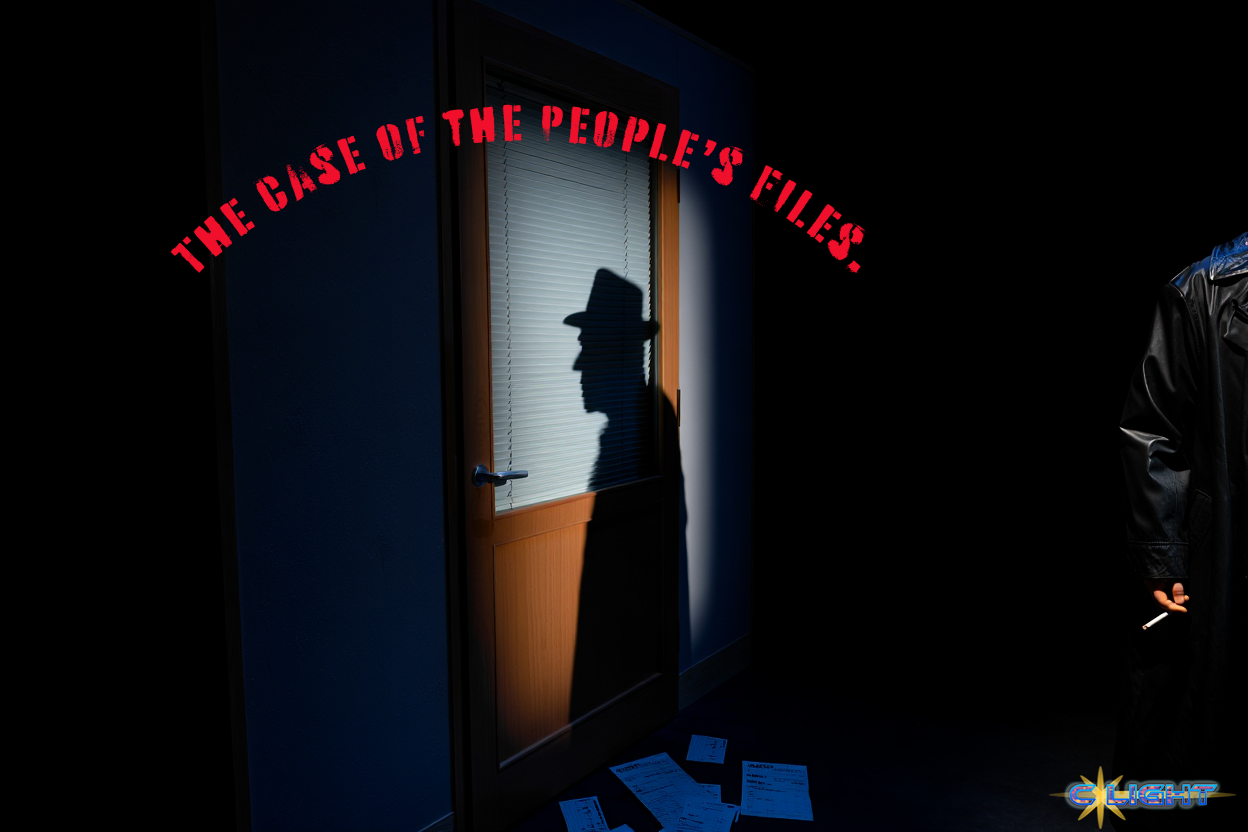Chapter 5: The Smoking Gun
Just when we thought the file was ready for the archives—motive, means, and opportunity all accounted for—a final dispatch lands on the desk with a thud. It’s from our man at Bloomberg, and it contains the final, damning clue, the detail that blows the suspect’s alibi to pieces once and for all.
All along, the administration of Felonious Punk has claimed it needed “unfettered access” to our Social Security files to do the noble work of fighting “waste and fraud.” The implication was that the lower courts were foolishly standing in the way of good governance. But this final report reveals the stunning truth of Judge Ellen Hollander’s original order.
She did not completely block DOGE from accessing personal data. Her ruling was a masterpiece of judicial reason. She said DOGE could have all the anonymized data it wanted. And if they needed to see a specific person’s private information? They could have that, too. All they had to do was follow a simple, common-sense procedure: submit a written statement explaining why they needed it and why anonymous data wasn’t good enough.

She was asking them to do one simple thing, the very thing any legitimate investigation would do as a matter of course: show their work.
And here, in the administration’s reaction to this perfectly reasonable condition, we find our smoking gun. They refused. Instead of following this straightforward process, they launched an “emergency” appeal all the way to the Supreme Court. Their actions amounted to a full confession. A department supposedly dedicated to finding specific cases of fraud refused to follow a process for accessing specific cases of data.
Why? Because they never wanted a scalpel; they wanted a bulldozer. They didn’t want to investigate individuals; they wanted to data-mine the entire population. Their appeal to the Supreme Court wasn’t a plea to gain access; it was a plea to gain access without justification, without oversight, and without leaving any fingerprints.
Case Closed.
Let’s close the book on the Case of the People’s Files.
The Crime: It was never about “waste and fraud.” That was the cover story, the cheap alibi sold to a pliant public. The true crime was the ambition to turn the most comprehensive database of American lives—our jobs, our health, our families, our finances—into a political weapon, a digital dragnet for mass deportations and likely other, as-yet-unspecified, political ends.
The Accomplice: The crime was enabled by a Supreme Court majority that has repeatedly and consistently demonstrated its willingness to serve as the administration’s private security detail, bulldozing lower court precedent and due process to serve the executive’s agenda. As Justice Jackson wrote, what should be an extraordinary measure has become just another “ordinary day on the docket” for them.

The Cover-Up: The conspiracy was protected by a simultaneous, brazen legal maneuver to have DOGE declared a mere “advisory board,” shielding its own inner workings from the prying eyes of the public and the press.
The Proof of Intent: And the smoking gun, the final piece of irrefutable evidence, was their contemptuous refusal to accept a judge’s common-sense offer. They were given a legal key and invited to use the front door, provided they signed the guest book. They chose instead to use a crowbar on the back window in the dead of night, because their true goal was never to inspect the plumbing, but to loot the entire house.
The mystery is solved. But the danger, of course, has just begun.
Discover more from Clight Morning Analysis
Subscribe to get the latest posts sent to your email.










